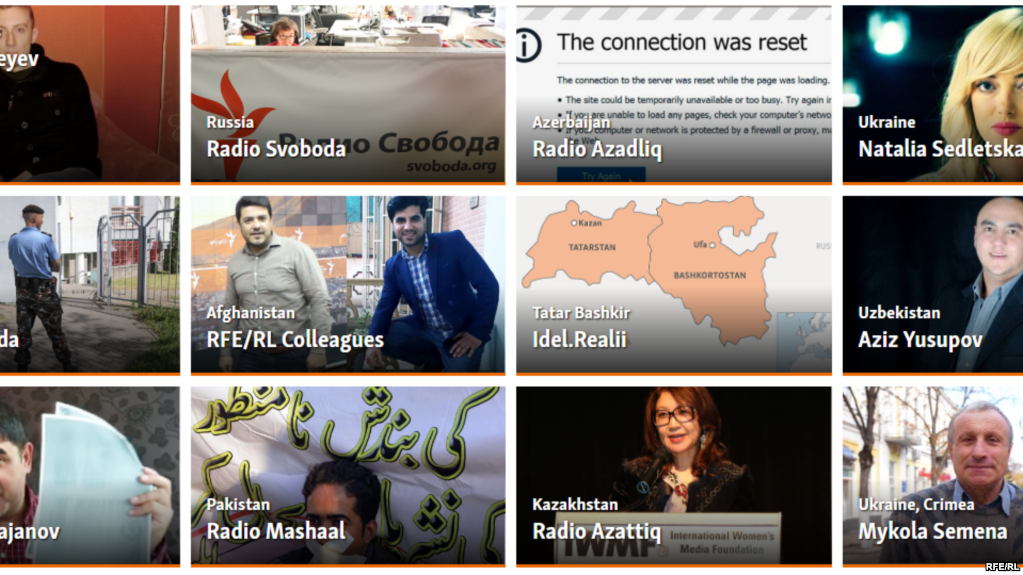RFE/RL Reports Increased Attacks On Its Journalists

On the UNESCO International Day to End Impunity for Crimes against Journalists, Radio Free Europe/Radio Liberty (RFE/RL) has documented an expanding use of restrictive acts and intimidation targeting its journalists in no fewer than 12 countries where RFE/RL reports.
“It is our mandate to work in countries that lack a free press – RFE/RL seeks to fill the gap and nurture local, independent journalism. However, there is a growing atmosphere of hostility against the media almost everywhere that enables these attacks and makes it easier for governments to ignore them,” said RFE/RL Editor in Chief Nenad Pejic. “More of our journalists are under attack this year, in more countries, but RFE/RL has been confronting repressive regimes for over 60 years and we will not be silenced,” he said.
Over the last year, RFE/RL has been subject to state-sponsored, frontal attacks on its operations that have gone unchecked. In December 2017, Russia’s justice ministry designated the company’s Russian-language units as “foreign mass media performing the functions of a foreign agent,” a status that has provided a pretext for harassment, defamation campaigns, and threats against its journalists. In Pakistan, the Inter-Services Intelligence (ISI) agency ordered the closure of the Islamabad bureau of RFE/RL’s Pashto-language service Radio Mashaal, accusing it of working against the country’s interests “in line with [a] hostile intelligence agency’s agenda.” In Azerbaijan, the Supreme Court ruled in favor of a ban on RFE/RL’s Azerbaijani website, claiming it poses a “threat” to the country’s national security and propagates “violence, hatred, or extremism.”
Three journalists with RFE/RL’s Afghan Service were killed in Kabul in April in dual suicide attacks claimed by the militant group Islamic State that the Afghan government has failed to investigate.
Ukrainian journalists with RFE/RL’s anti-corruption program Schemes have been subject to assault, slander and harassment by government officials, including the prosecutor general, and powerful oligarchs. In Ukraine’s eastern Donbas region, Russia-backed separatists have held blogger Stanislav Aseyev in communicado since June 2017, alleging treason.
To date in 2018, RFE/RL has documented 42 incidents targeting its journalists in no fewer than 12 countries in connection with their work, up from 34 attacks in 10 countries in 2017. The attacks include harassment, physical assault, arbitrary detention, interrogation, imprisonment, court convictions, stalking, verbal attacks, online threats, and seized equipment. In Uzbekistan and Turkmenistan, RFE/RL reporters’ family members have been targeted.
In its call to end impunity, UNESCO cites more than 1,000 journalists killed globally between 2006 – 2017, “with 182 reporters losing their lives in the line of duty.”
UNESCO also reports that “local reporters investigating corruption, crime and politics, constitute the overwhelming majority of victims in the profession.”
Radio Free Europe / Radio Liberty is a private, independent international news organization whose programs — radio, Internet, television, and mobile — reach influential audiences in 23 countries, including Russia, Ukraine, Iran, Afghanistan, Pakistan, the republics of Central Asia and the Caucasus. It is funded by the U.S. Congress through USAGM.About RFE/RL
